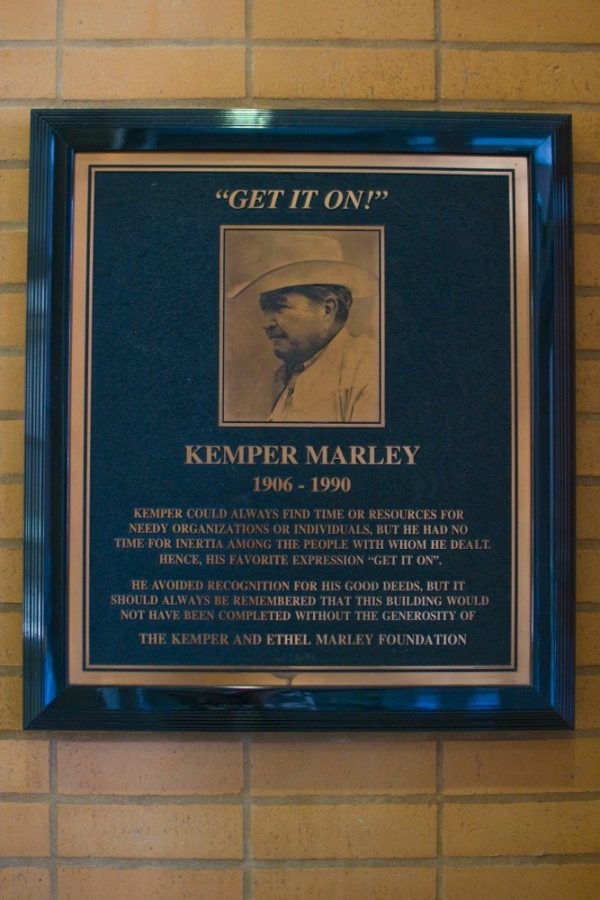While the UA’s Marley building serves as a namesake for a man whose foundation continues to financially support the UA, Kemper Marley also financed organized crime, and may have even been involved in the murder of a reporter who tried to expose him.
In 1990, the Marley building was constructed with money from the Kemper and Ethel Marley Foundation that dedicates private funding to support the growth of agricultural industries in Arizona.
Located on 1145 E. Fourth St., the building houses the College of Agriculture faculty offices and research laboratories. The foundation supports work that enhances the ecological, economic and social viability of ranching.
The foundation was formed by Kemper Marley Sr. in 1990, shortly before his death. After his death, Ethel Marley, his wife, took presidency of the foundation until her death. Current family members now run the foundation.
The Marley family has a long agricultural past in Arizona, according to Randy Ryan, assistant director of the UA’s Agricultural Experiment Station.
“The Marley contribution allowed us to put in place roughly 25,000 square-feet of research space that we desperately needed,” Ryan said. “A lot of the science that is being done in that space is cutting-edge research, such as pathology, entomology and plant sciences.”
With assets of more than $100 million, the foundation is one of the five largest philanthropic interests in Arizona, according to the Kemper and Ethel Marley Foundation site.
The foundation also benefits organizations that support community health and human services, enhancement and medical facilities and research.
“This research fosters and helps to better our science foundation for renewable fuels, reducing pesticide usage and inhaling agriculture production,” Ryan added. “That’s what their gift is translated into.”
Kemper Marley was a powerful wholesale liquor businessman and had branches all over Arizona. He also financed an organized crime racing wire service for bookies that made it possible for organized criminals to gain information about racing news, according to an archived article published in a 1977 issue of the Eugene Register Guard newspaper in Oregon.
Marley’s activities drew the attention of local news in 1976 when Don Bolles, an investigative reporter for The Arizona Republic, was killed after a bomb that had been placed beneath his car exploded in the parking lot of a Phoenix motel. Max Dunlap, Marley’s multi-million dollar land-deal partner was accused of hiring Bolles’ killers and was later convicted of first-degree murder.
Marley was also named in a police testimony as the man who called for the killing of Bolles. Prosecutors said Bolles was killed because of his stories about Marley’s involvement in organized crimes and his liquor sale business.









